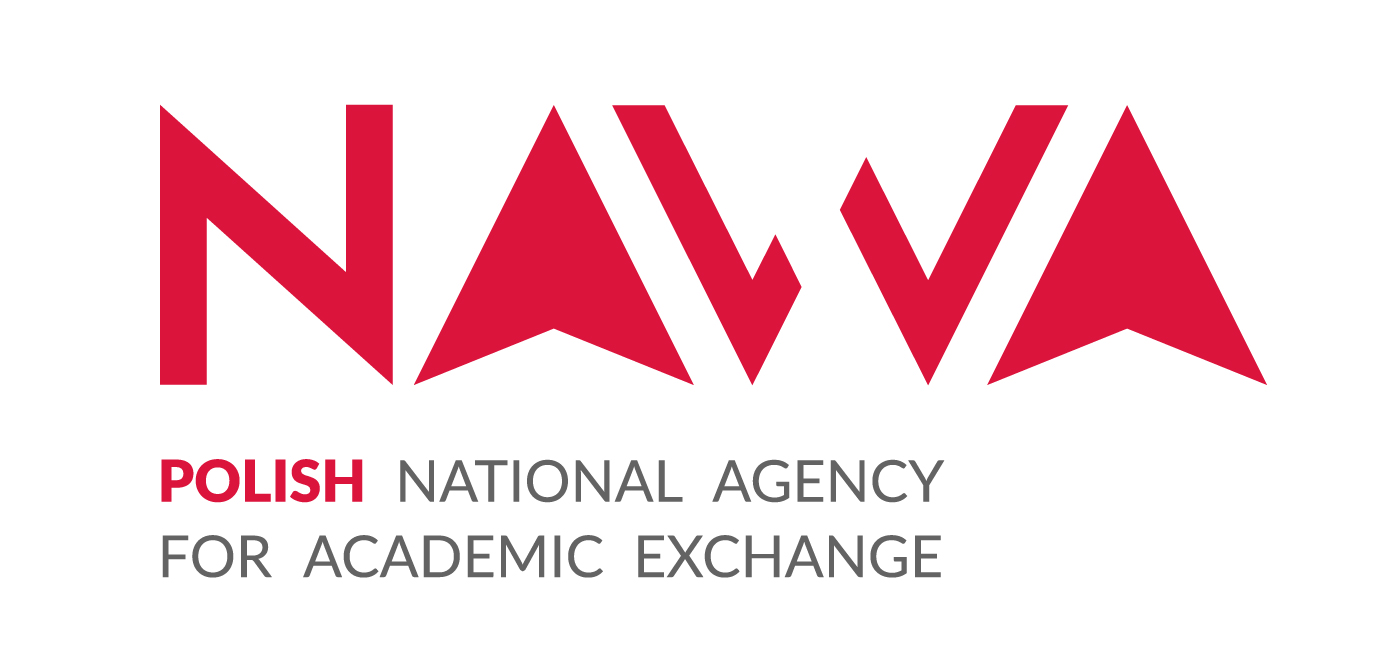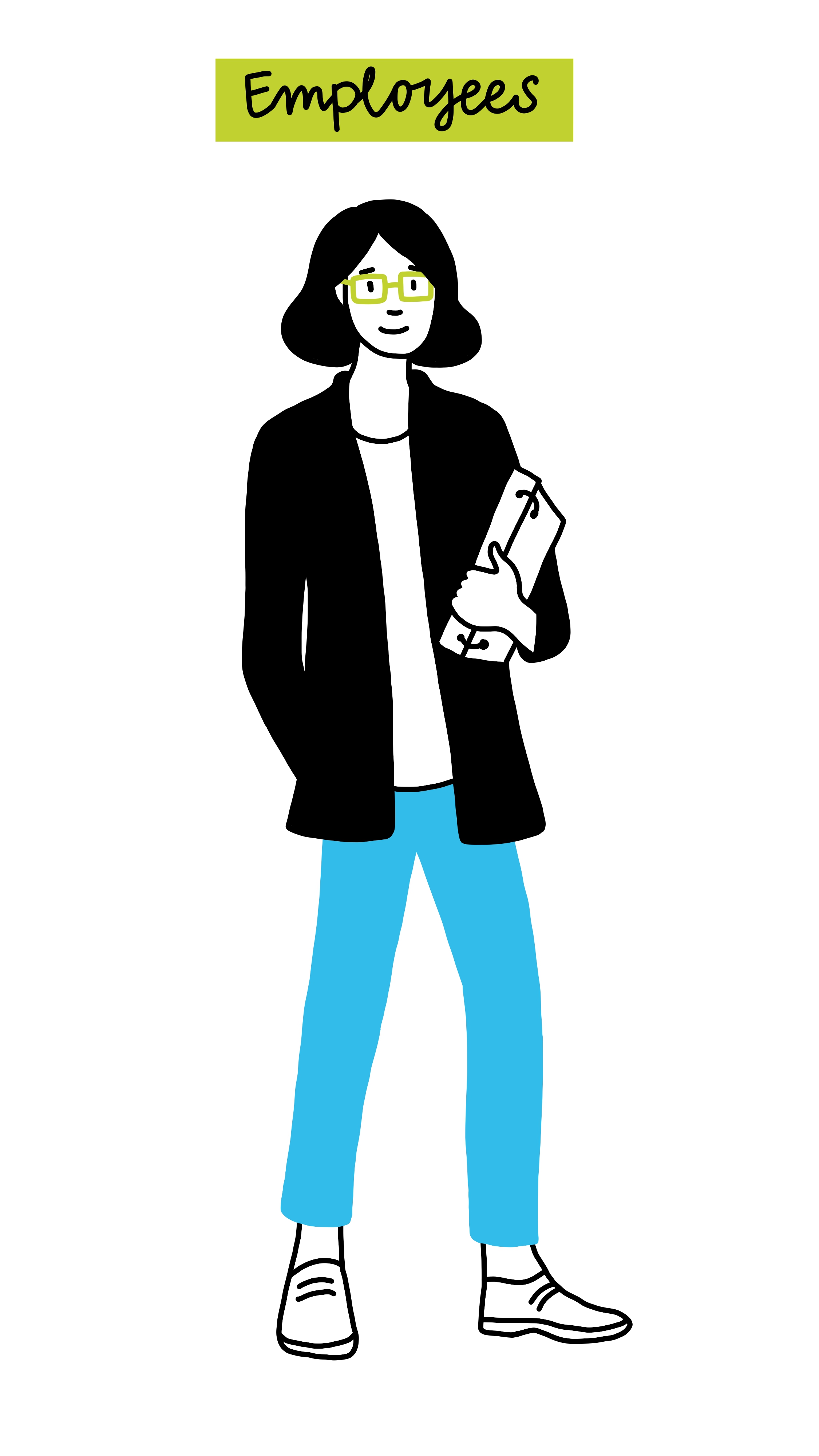
How to obtain health insurance in Poland?
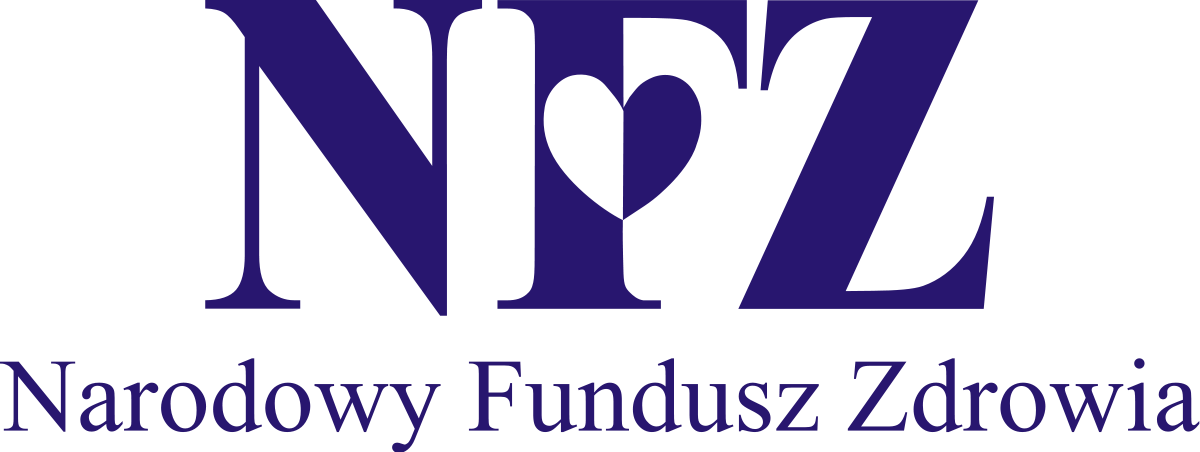
Public healthcare in Poland is financed through the National Health Fund (in Polish: Narodowy Fundusz Zdrowia, or NFZ). All persons employed in Poland, including foreigners, are obligated to pay health insurance fees, which are deducted from their salary. This is usually done by the employer. Being employed (insured with ZUS/NFZ) allows foreigners to insure their family members as well.
If a person staying in Poland is not obligated to be insured, they can still apply for public health insurance if they wish to do so. In this case, they must sign an agreement with the NFZ and,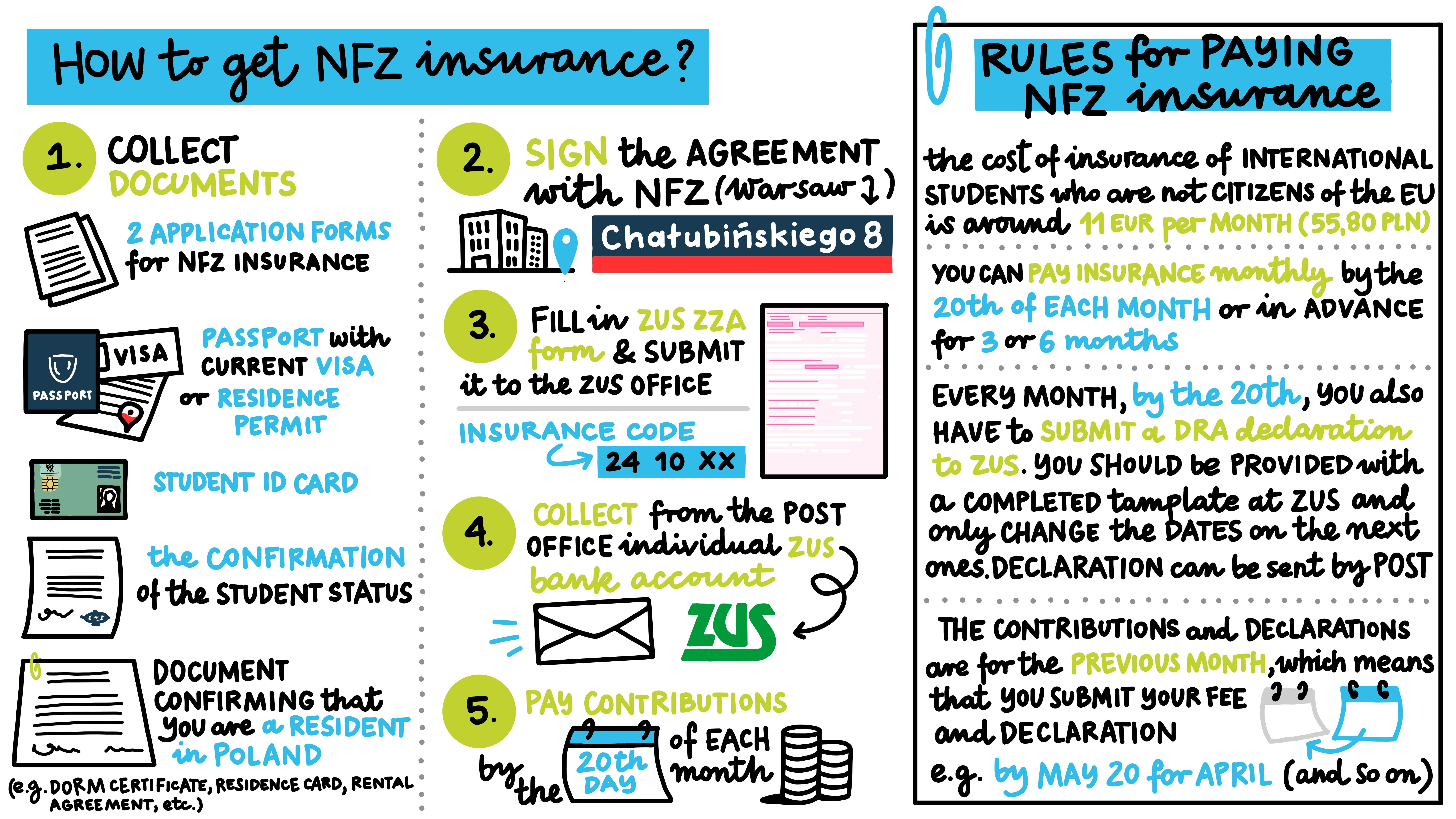
![]()
after that, submit a document called ZUS ZZA to the Social Insurance Institution (in Polish: Zakład Ubezpieczeń Społecznych, or ZUS).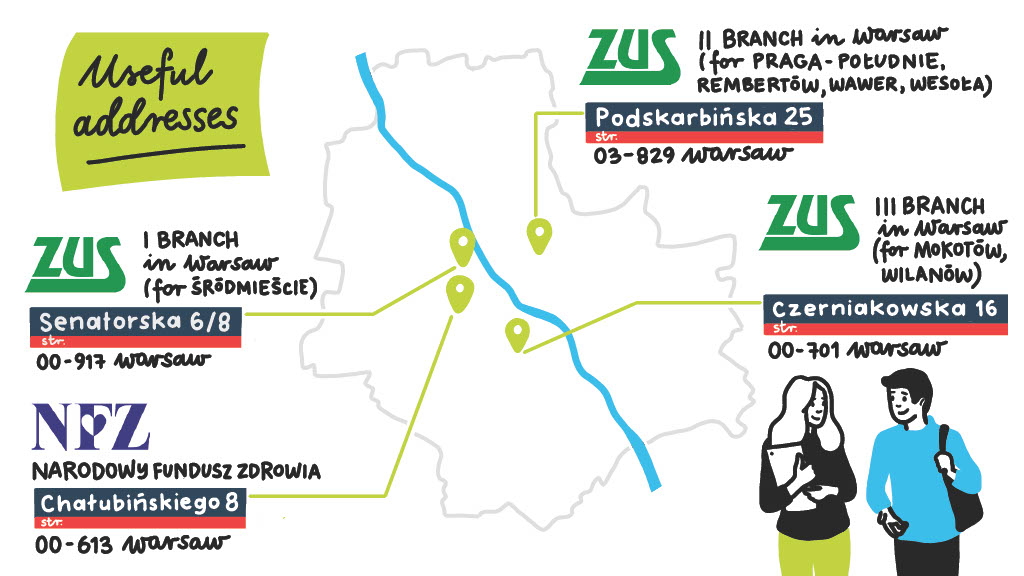
![]()
In terms of private healthcare, insurance plans vary between providers, so it is best to look into the offers of multiple health insurance companies before making a decision. Please be advised the cheapest options only include basic services, e.g.: visits to general practitioners or certain specialist doctors. More advanced services, e.g. more complicated dentistry treatment, giving birth, operations or hospitalization, require more expensive insurance plans.
EHIC – European Health Insurance Card
Individuals who travel for a period of time to any of the member states of the European Economic Area (European Union countries and EFTA: Iceland, Liechtenstein and Norway) or Switzerland are advised to take with them a document confirming the right to receive health care, i.e. the European Health Insurance Card (EHIC). The card entitles you to free health care services that operate within the country’s universal health care system.
- In order to obtain an EHIC card, an application must be submitted to a provincial branch or delegation of the National Health Fund. The Mazovian branch of the National Health Fund is located at 8 Chałubińskiego Street – entrance from Wspólna Street.
- The card is issued for 6 months.
The application for an EHIC must be accompanied by a document confirming health insurance in the NFZ.
Employees are asked to submit one of the documents below:
- valid ZUS RMUA form
- A certificate from the HR (ZUS ZUA form),
For family members:
- application for insurance for a family member (print ZUS ZCNA or ZUS ZCZA)
For persons who have reached the age of 18:
- a document confirming the continuation of education,
For persons with disabilities:
- a document confirming dysfunctions.
Detailed information on the issuance of the European Health Insurance Card can be found on the website of the National Health Fund.
Private medical care
If you want to use private medical care, you need to sign a contract with a private medical care supplier. The fees and terms vary, so it is best to check a couple of companies.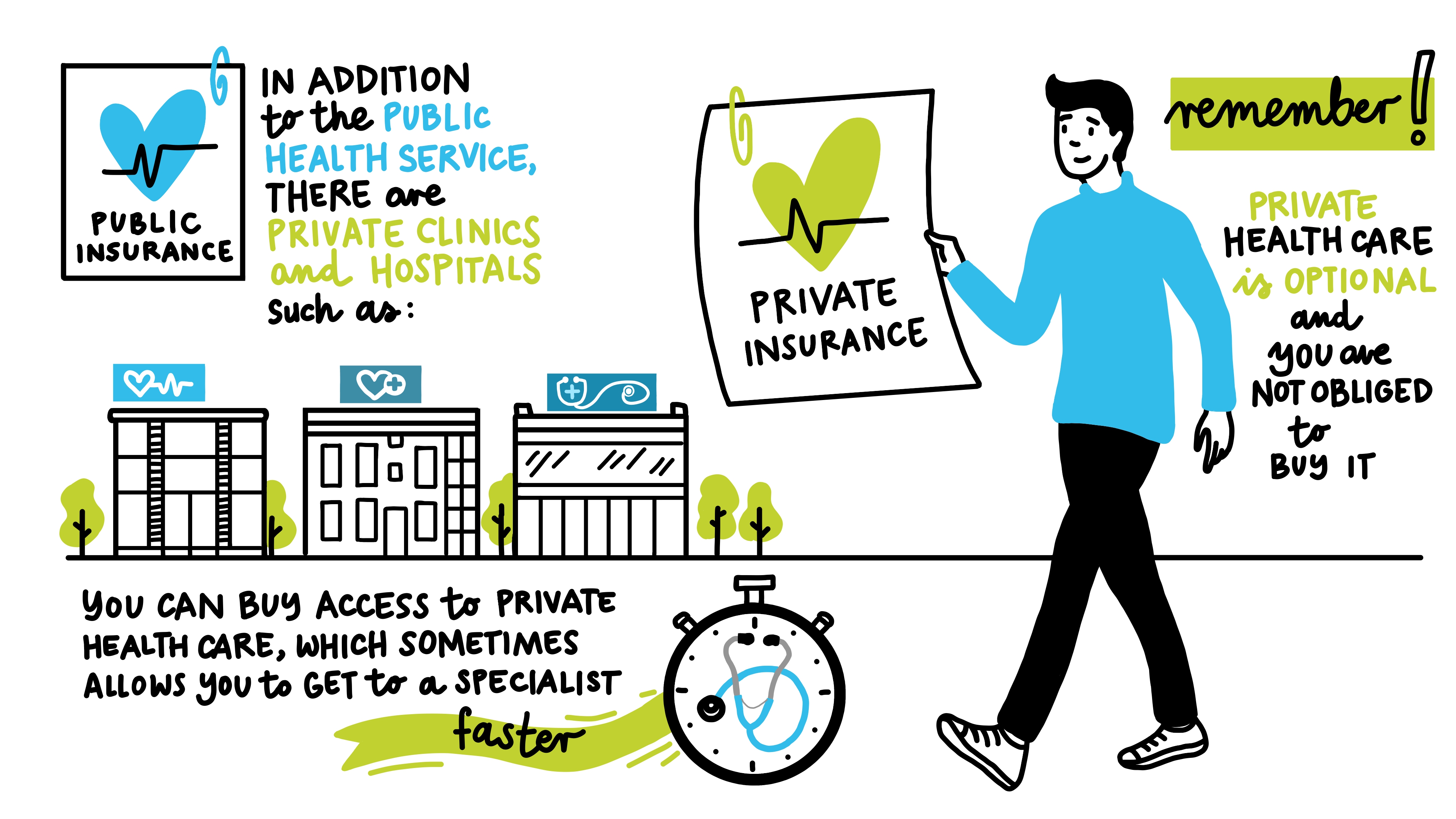
![]()
Additional insurance
UW employees may purchase additional group insurance in PZU or PKO (Nordea Polska S.A.) and/or join a private health insurance program, TUW Pocztowy (LUXMED).
Information on additional group insurance and private health insurance can be provided by the Insurance Section of the Human Resources Office.
Human Resources Office
Insurance Section
Krakowskie Przedmieście 26/28
00-927 Warsaw
Kazimierzowski Palace, ground floor, room 1
www.en.bsp.adm.uw.edu.pl
OptioNs
- Group employee insurance PPlus
- health and life insurance are available 24/7 all around the world for the University of Warsaw employees and their relatives
- different options (in Polish only)
- conditions (in Polish only)
- Group health insurance TUW Pocztowy (LUXMED)
- private health insurance available for the University of Warsaw employees and relatives
- details and contact to coordinators at UW (in Polish only)
- two options: extended and complex (in Polish only)
- declaration of accession (in Polish only)
- conditions (in Polish only)
- refund rules (in Polish only)
- refund application (in Polish only)
- Group life insurance in PKO
- group life insurance is available for the University of Warsaw employees (with the possibility to benefit from an equity fund from PKO Ubezpieczenia)
- different options (in Polish only)
- One-year accident insurance
- available for employees, doctoral students, and students of the University of Warsaw
- different options (in Polish only)
- conditions (in Polish only)
Insurance while traveling abroad
Employees and students of the UW traveling abroad privately, their family members and accompanying individuals may, for the duration of the trip, subscribe on preferential terms to insurance for medical expenses and assistance abroad, as well as insurance: Personal Accident, Civil Liability and Baggage at STU ERGO Hestia SA, under open policy No. WA50/002144/22/A.
The insurance also covers incidents resulting from infection with a coronavirus, particularly COVID-19, regardless of the status of a declared pandemic or epidemic.
To apply for insurance, fill out an application, sign it (applications for minor children are signed by their parents) and send it to the following contact:
- Leonard Pilipczuk, Mentor SA Brokerage Company, e-mail: mentorlu@mentor.pl, tel. +48 502 027 630
- Insurance offer
- Business & travel insurance
- Insurance details SWU_ERGO HESTIA
- Articles of Association Horyzont Pro
The documents linked above are provided only in Polish language.
How to make an appointment with a general practitioner?
To benefit from the public health service, you must first register at an NFZ clinic, and choose your general practitioner and nurse. It is best to sign up for the clinic which is nearest to your place of residence or work. Make sure that the clinic is financed by NFZ or has an agreement with NFZ; a clinic should have an NFZ sign in front of the entrance.
To register, you will need to provide proof of identity (a passport or an ID card) and proof of health insurance (e.g.: payslip, in Polish: RMUA which can be obtained from the HR office or downloaded in SAP). After registering, you may schedule an appointment with a general practitioner.
Remember that only some doctors speak English, so you may not be able to register for the visit the next day. It is useful to take a Polish speaker with you, as not all clinic employees speak English.
How to receive medical attention/treatment?
When it comes to public healthcare, in most cases, it is not possible to make an appointment with a specialist by yourself. The first step is to visit a general practitioner’s office (in Polish: lekarz pierwszego kontaktu or lekarz rodzinny). If needed, they may give you a referral (in Polish: skierowanie) to see a specialist or to undergo further medical examination.
A referral is not required in the case of the following specialists:
- oncologist,
- gynaecologist,
- psychiatrist,
- venereologist,
- dentist.
Useful vocabulary:
- doctor — lekarz/doktor
- General Practitioner (GP) — lekarz pierwszego kontaktu
- Paediatrician — pediatra
- dentist — dentysta
- nurse — pielęgniarka
- primary care centre — przychodnia
- registration — rejestracja
- referral — skierowanie
- prescription — recepta
- pharmacy — apteka
- medication — lekarstwo / lek
- vaccination — szczepienie
- Emergency (room) — SOR / szpitalny oddział ratunkowy
- hospital — szpital
What to do in case of an emergency?
In case of an emergency or an urgent health threat (severe shortness of breath, sharp chest pain, severe allergic reactions, extensive burns, etc.), you can request help from the Emergency Medical Services – by calling 999 or 112. You may also go to the emergency room in the nearest hospital (in Polish: szpitalny oddział ratunkowy, or SOR).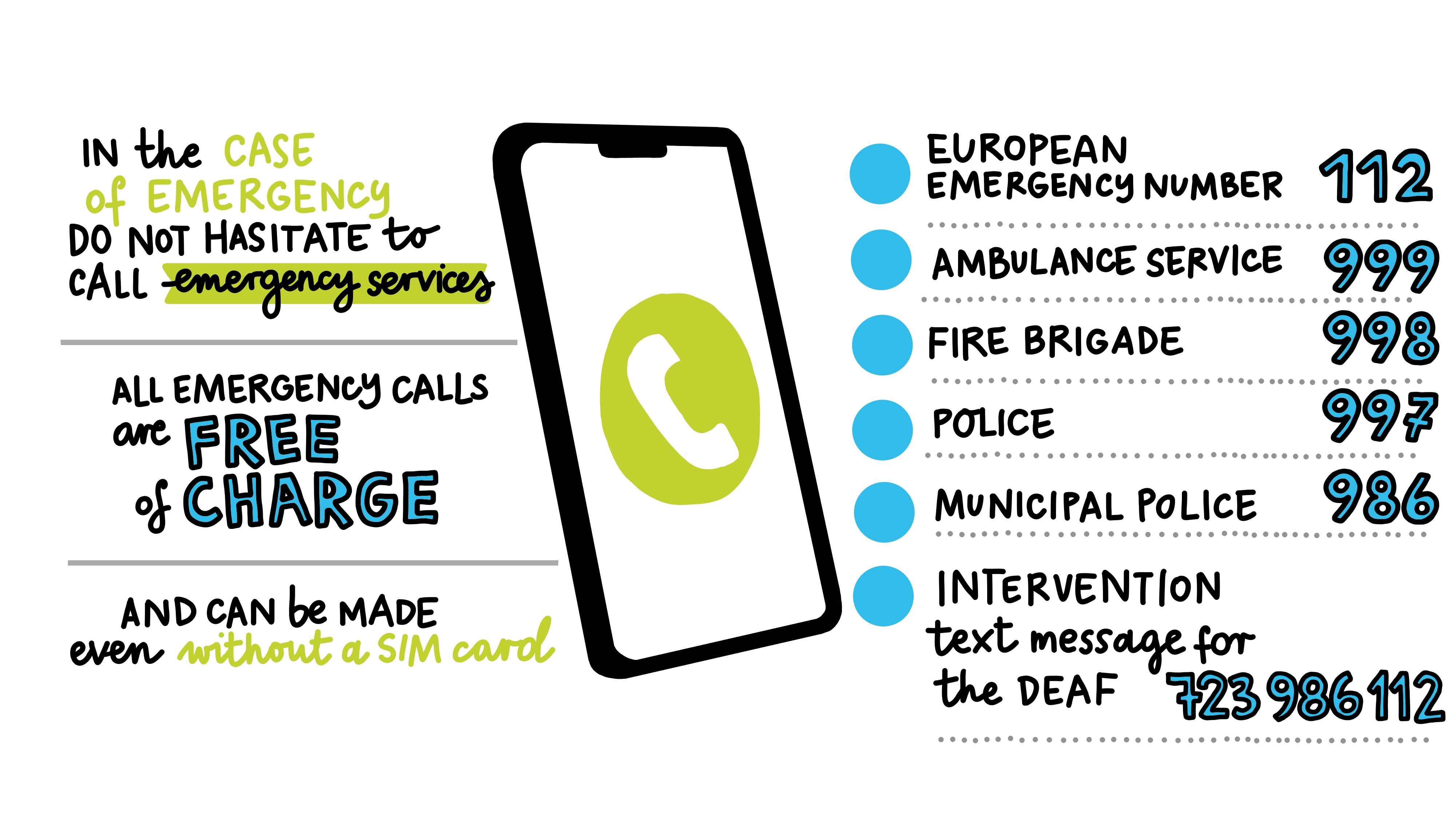
![]()









